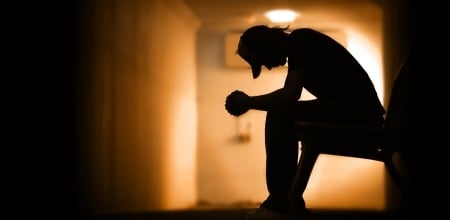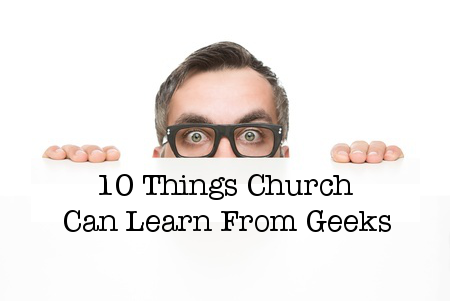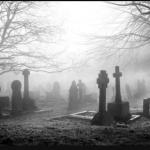
It certainly couldn’t be about the Church!
After all, we Christians have been around for a mighty long time and things have been just fine. Are we supposed to believe that all of a sudden we’re doing something wrong when we have this history saying we’re doing pretty good?
Over the last few years, you may have heard about the emerging group of people sometimes called the “Spiritual But Not Religious” (SBNR). They comprise one of the fastest growing spiritual groups in the United States. When you look at the demographics of the group, you’ll find it’s really quite diverse. While SBNR includes people who at one time identified with a particular denomination and have left the Church, it also includes the un-churched, freethinkers, and many others.
More recently, you may have heard the term “The Nones,” as in “none of the above.” It’s a bit confusing to sort out who we are talking about any more, as various surveys categorize the labels differently and frequently force responders to simply identify themselves as not attending church regardless of whether they consider themselves spiritual or not.
So, on some surveys “The Nones” could include both people who are currently unaffiliated with a denomination as well as folks who may have never believed in God at all.
In the last month, we’ve seen a new moniker making the rounds: “The Dones.” I find this a much more helpful label because it’s not as broad as SBNR or “The Nones”
Essentially, The Dones are unaffiliated believers.
While it sounds similar to the SBNR or even the The Nones, there is an important difference – one that should perk up the ears of the body of Christ: The Dones have all been active in a church. Frequently, they were among the most active.
I say it should perk up the ears of the body of Christ, but as I mentioned at the beginning of this article, it is much more likely to perk up the Church’s defenses.
For me, this is where the whole issue gets fascinating.
The Dones are done – walking away from Church, never to come back. They were once considered essential, valuable members of the community right up until the moment they left. Now they are big dummies that just don’t get it.
Really?
I think we may have just found the problem. That’s not really community. That’s not the unconditional love I hear preached from pulpits and in the teachings of Jesus. That’s a “what-have-you-done-for-me-lately” kind of attitude that reeks of power structures, fitting in and meeting expectations. It’s basically what you would expect to find in institutions that are centuries old.
Interestingly enough, unlike the larger group of SBNR, some of whom are intentionally and unintentionally seeking out other forms of spiritual community, all of the Dones are done with spiritual community of any form.
The Church is killing spiritual community or at least killing it in an ever-growing portion of our population. The Dones’ experience with the Church killed their desire to ever go to that place of spiritual relationship in community again.
If the Church’s ears aren’t perking up at this point, we have a problem that can’t be fixed.
If you’re curious about whether the Church is now listening just come back in a day or so and read the comment section of this post. Denial will be firing on all cylinders, working desperately to poke holes in everything said here, pointing figures in every direction except at the Church – there may even be a little name calling going on.
I’d actually make the argument that the rise of the Dones doesn’t just point to the Church killing of the Dones’ desire for spiritual community, it points to the damage the Church has already done to spiritual community within itself.
Over the past few years, as the Church has come to grasp the reality that folks are leaving and the behavior of the body of Christ was one of their main contentions, we’ve seen public figures basically say, “get over it – community is hard.” Again, pointing fingers at those whom I’d argue are the victims.
Yes, community is hard, but it doesn’t have to be so unnecessarily hard.
The Dones are right. The communities making up far too many churches are much more soul sapping than they are spiritually nurturing.
Does that mean all churches? Of course not. There are still plenty who are doing a great job. However, watching the continued exodus from the Church and the feedback those who are leaving provide, there’s clearly not enough of churches doing it well.
It’s not surprising really. Decades and centuries of rules, regulations, formal and informal expectations have created a quagmire of social “norms” that have to be negotiated for doing even menial tasks as simple as using the church’s kitchen sink. Those who are willing to brave and navigate the obstacle course for the sake of getting things done ultimately (and understandably) burn out.
“Community is hard?” That’s not community; that’s control. That’s not unconditional love; that’s playing games of politics and power. That’s not spiritual community; that’s abuse.
So, the Dones are right, that kind of “spiritual community” is not something to continue to seek out.
And they are wrong.
That’s not what a healthy spiritual community looks like but a healthy spiritual community actually is important in having a healthy spiritual life.
Just look at Jesus. The very first thing he did when beginning his ministry was to intentionally form a spiritual community.
In a healthy community we find support that would be impossible to give to ourselves. When we falter and struggle, those who are not struggling as much can be there to help hold us up. When we are doing well, we can offer the same support to others. As believers, spiritual journeys are so essential in our formation that they are wrought with difficulties, struggles and doubt – and they should be. We need community to guide us along the way.
The Church got to where it is honestly, though I’m not sure that makes it any better. It’s just difficult to overcome so much history and all the layers of residual expectations and social norms that have been built up over two millennia.
The thing is: the rise of the Dones should be seen as the last warning shot across the bow of the Church.
The crack of that cannon should perk up the ears of the body of Christ and every last ounce of energy it has left should be used to begin stripping back the layers of lacquered on community expectations and obstacles that have nothing to do with love and nurturing.
I hope I’m wrong. I hope the Church hears. I hope the comment section isn’t chock full of folks doing their best to dismiss me and my “heretical” position on this.
Sadly, I suspect the opposite will be true. The Church will continue to be comfortably numb to the exodus happening because of its need to hold on to what it knows and its need to remain constant.
So, here’s to the rise of the Dones!
May your voices finally be heard, and if they’re not, may you find a new path to a healthy spiritual community that is not so littered with obstacles from the past.
Consider supporting Mark’s blogging. Help create a market for Progressive Christianity. Not through big publishers or big denominations, but through the grassroots. We need to encourage the growth of progressive Christian voices in the marketplace. Even a dollar will help.
Facebook continues to make it increasingly difficult for me to let you know about new blog posts like this. Please consider signing up for my mailing list where we can insure you are notified. Just click here!
Mark is a co-founder of The Christian Left. Come and join the conversation!
















